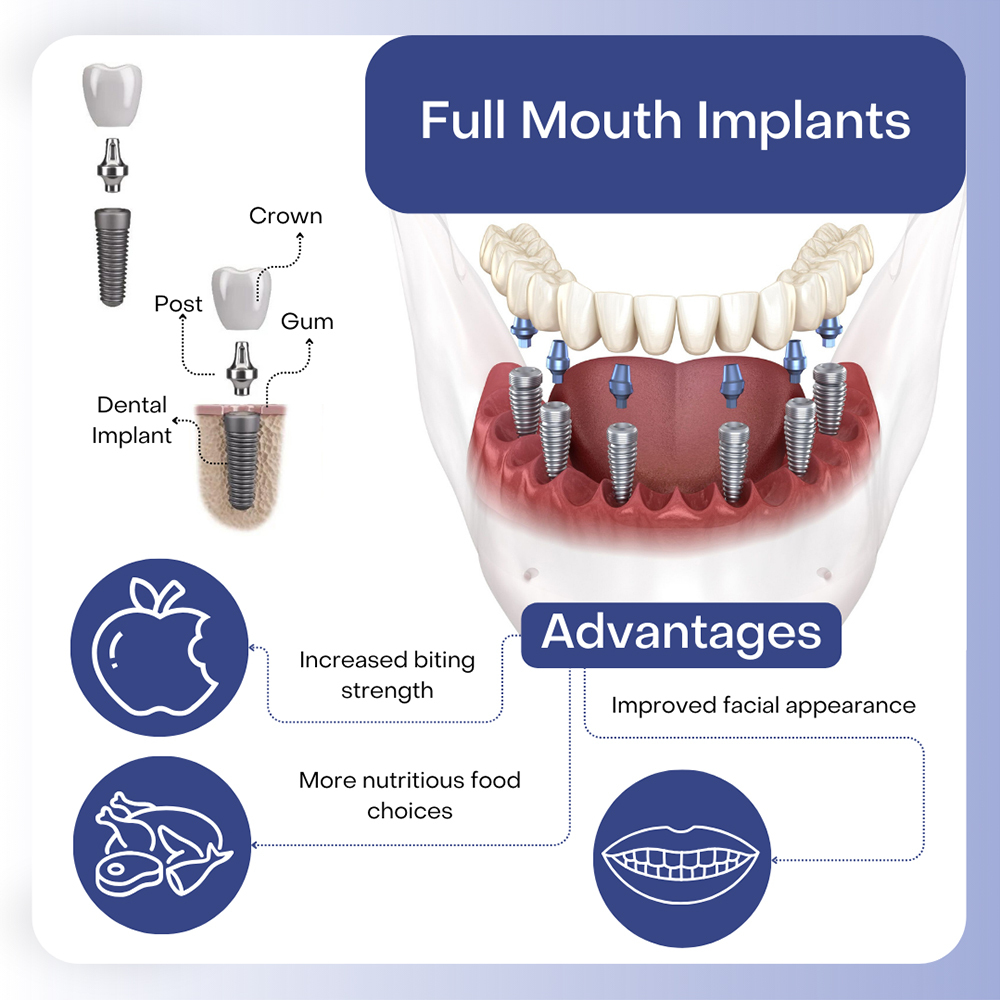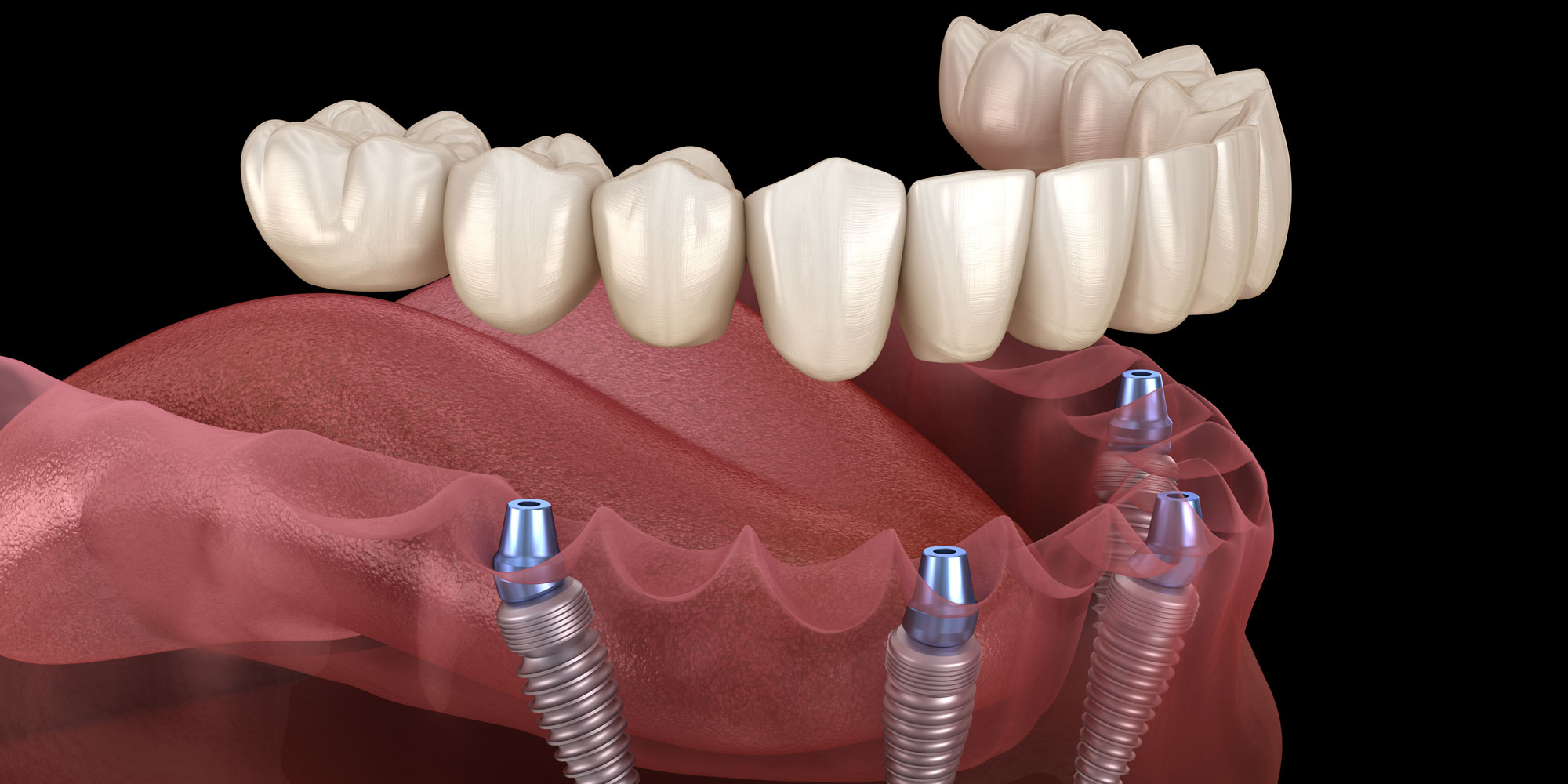A Biased View of Dental Sense
Unknown Facts About Dental Sense
Table of ContentsNot known Facts About Dental SenseDental Sense Things To Know Before You Get ThisFascination About Dental SenseFascination About Dental Sense
are clinical gadgets operatively implanted into the jaw to bring back a person's capability to eat or their look. They offer support for fabricated (phony) teeth, such as crowns, bridges, or dentures. When a tooth is lost because of injury or illness, a person can experience difficulties such as fast bone loss, faulty speech, or modifications to chewing patterns that lead to pain.Dental dental implant systems include a dental implant body and dental implant abutment and may also include a joint addiction screw. Wisdom tooth cavity. The oral implant body is surgically inserted in the jawbone in area of the tooth's root. The dental implant abutment is normally affixed to the dental implant body by the joint fixation screw and expands via gum tissues right into the mouth to sustain the attached fabricated teeth
(http://peterjackson.mee.nu/where_i_work#c2504)Structure of The Dental Implant System picking dental implants, talk to your oral provider concerning the possible benefits and dangers, and whether you are a candidate for the procedure. Points to think about: Your overall wellness is a crucial consider identifying whether you are a great prospect for oral implants, for how long it will take to heal, and how long the dental implant may remain in location.
Smoking may influence the recovery process and reduce the long-lasting success of the dental implant. The recovery procedure for the dental implant body might take several months or longer, during which time you usually have a short-lived abutment in place of the tooth. the dental implant procedure: Thoroughly follow the dental health instructions provided to you by your oral provider.
Dental Sense - An Overview
Implant failing can cause the requirement for one more surgery to deal with or replace the dental implant system. Brings back the ability to eat Brings back aesthetic appearance Helps keep the jawbone from shrinking as a result of bone loss Preserves the wellness of the bordering bone and gums Assists maintain surrounding (neighboring) teeth secure Boosts lifestyle Damage to surrounding natural teeth during implant positioning Injury to the surrounding tissues during surgical treatment, such as sinus perforation Injury throughout surgery (as an example, crack of surrounding jawbone) Inadequate function, such as seeming like the teeth do not bite together typically A feeling that the tooth is loosened or turning in area arising from a joint screw loosening Implant body failure (looseness of the implant body) because of systemic infection, which might be more probable in clients with unchecked diabetes due to regional infection in bone and periodontals sustaining the dental implant body due to delayed healing, which may be most likely in patients who smoke Problem cleaning the gums around the dental implant, leading to bad dental health Unattended periodontal disease Post-surgical pins and needles because of nerve impingement or damages Always inform healthcare suppliers and imaging technicians that you have oral implants prior to any kind of magnetic vibration imaging (MRI) or x-ray treatments.
FDA is not knowledgeable about any negative occasions reported for MRI or x-ray treatments with oral implants. Oral implants systems are normally made from materials that adhere to international consensus standards of the International Organization for Standardization (ISO) or ASTM International. These requirements have information of what makes a secure material.

An oral implant is a framework that replaces a missing out on tooth. With screw-like devices, the doctor inserts a dental implant into the jawbone, and it acts as an anchor for a man-made tooth, called a crown.
Unknown Facts About Dental Sense
Some people are not qualified for dental implant surgery. It is for oral cosmetic surgeons to run on people with: acute illnessuncontrollable metabolic diseasebone or soft cells condition or infectionIf these issues are settled, a person can have the surgical treatment. In, oral surgeons avoid running on individuals with: If individuals with any of the above undergo oral implant surgical treatment, there is a higher threat page of the dental implant stopping working.

Oral dental implant surgery is a personalized procedure. It's not the very same for everyone. The adhering to provides a general overview of what you can anticipate your dentist, oral doctor, periodontist or prosthodontist to do: Put the implant operatively. Provide you time to heal. Connect the article and last crown, bridge or denture.
Next, your doctor will carefully place the oral implant into your jaw. Lastly, your doctor will certainly reposition your gums and close the incision with stitches. If your implant is near the front of your mouth, your dental expert will make a momentary tooth for you to use till you heal. By doing this, you will not have a gap in your smile while you recoup.
What Does Dental Sense Do?
Throughout the recovery stage, your jawbone must fuse to the oral implant. This procedure can take anywhere from three to 9 months.
Once your implant heals, your dental professional can attach the abutment (little port blog post) and your last reconstruction (crown, bridge or denture). This typically takes regarding one hour to finish and may call for a 2nd small surgical treatment. You shouldn't really feel any discomfort during your oral implant treatment since your supplier will certainly use medicine to numb your gum tissues.